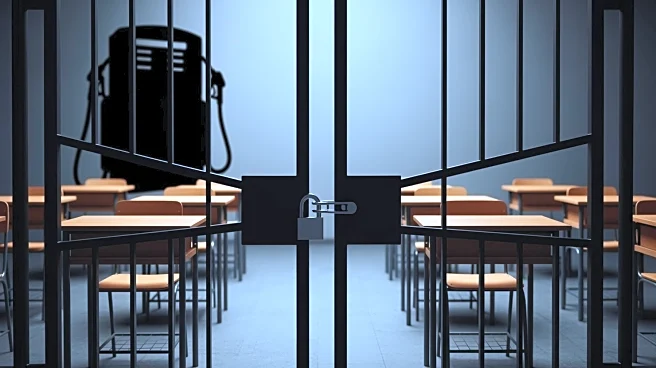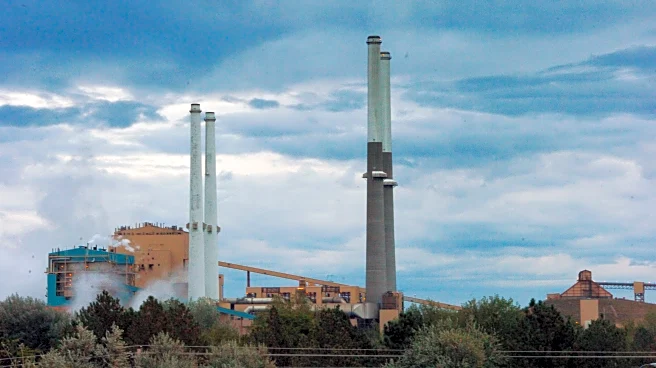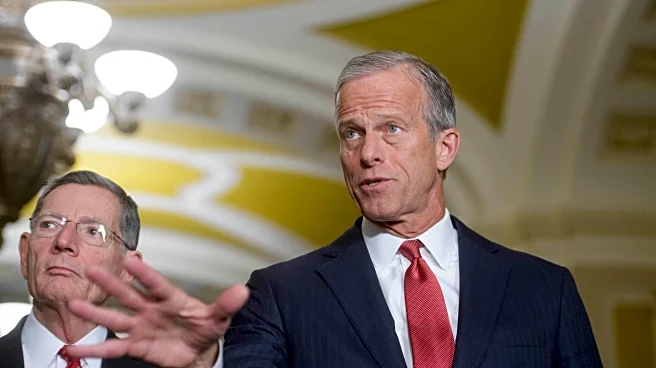What's Happening?
Mali has announced the closure of schools and universities nationwide starting Monday due to a severe fuel scarcity. This shortage is a result of a blockade on fuel imports imposed by jihadi militants on the capital, Bamako. Education Minister Amadou
Sy Savane stated on state television that classes would be suspended for two weeks because disruptions in fuel supplies are affecting the movement of school staff. The blockade was initiated by the al-Qaida-backed Jama’at Nusrat al-Islam wal-Muslimin group, which banned fuel imports from neighboring countries into Mali in early September. This has severely impacted the landlocked country's economy, leaving hundreds of fuel trucks stranded at the border. The situation has led to long queues at gas stations in Bamako and has affected commodity prices and transportation costs.
Why It's Important?
The fuel scarcity in Mali highlights the broader security and economic challenges facing the country. The blockade by militants not only disrupts daily life but also underscores the ongoing insurgency issues in Mali and neighboring countries like Burkina Faso and Niger. These nations have been battling armed groups, including those allied with al-Qaida and the Islamic State. The situation is exacerbated by recent military coups and the expulsion of French forces, with the countries turning to Russian mercenary units for security assistance. The blockade's impact on education and the economy is significant, as it affects the movement of people and goods, leading to increased prices and economic strain. The Malian military's efforts to escort fuel trucks have been met with attacks, further complicating the situation.
What's Next?
Authorities in Mali are working to restore normal fuel supplies with the aim of resuming classes by November 10. The government is likely to continue efforts to secure fuel transport routes and negotiate with neighboring countries to alleviate the blockade's impact. The situation may prompt further international attention and assistance, particularly from countries or organizations interested in stabilizing the region. The ongoing security challenges and economic implications may also influence future political and military strategies in Mali and its neighboring countries.

















